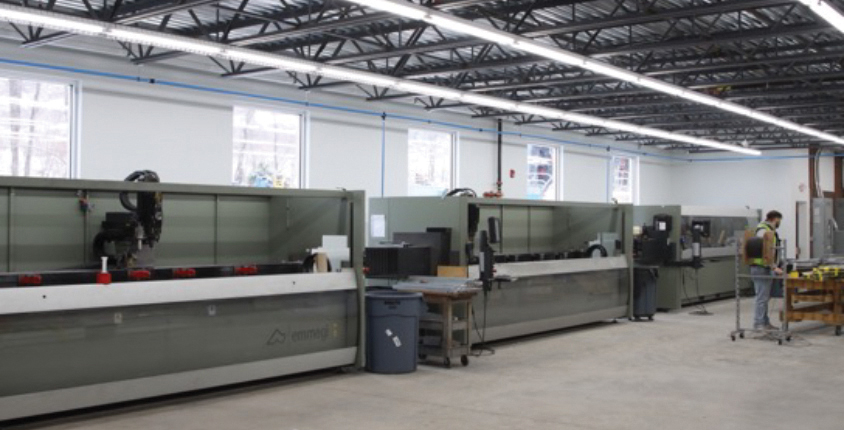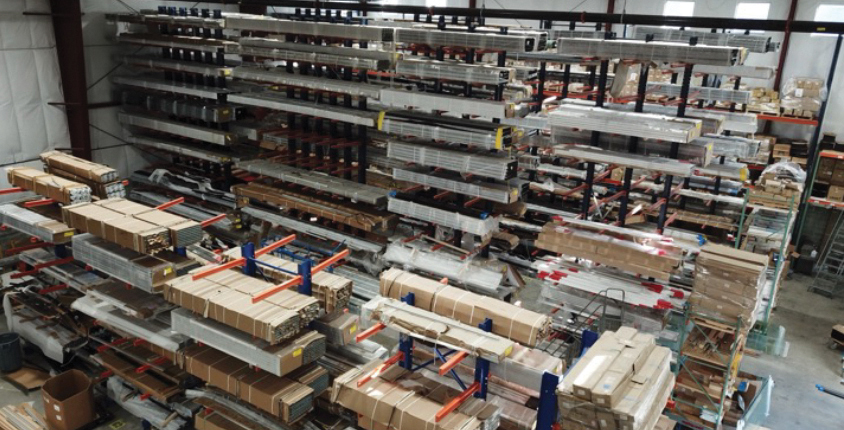Architect and design professionals are constantly juggling aesthetics, functionality, budget, and, increasingly, geopolitical factors like import tariffs. Importing glass wall materials from overseas can expand lead time and increase costs, adding complexity and risk to a project. As a result, choosing a US-based glass partition manufacturer like MetroWall lowers project lead times, has more predictable costs, increases sustainability, and mitigates risk.
The Impact of Tariffs
Tariffs directly inflate the cost of imported materials and that means a higher price tag. Manufacturers who rely on imported materials or products may raise their prices to offset increased costs, impacting project budgets. This translates to higher project costs, potentially leading to value engineering that compromises design intent or material quality. For projects with tight margins, tariff-related costs can limit the design. Not to mention, an overseas vendor’s supply chain can be easily disrupted by fluctuating trade policies. This uncertainty makes it challenging to maintain project schedules and can lead to costly delays and penalties that were unforeseen at the time of specification.
Why Should I Specify a US-Based Glass Wall Manufacturer?
Specifying a US-based manufacturer like MetroWall offers a buffer against this volatility. For example, MetroWall’s manufacturing facility is located in Congers, NY, enabling us to be close to the point of use. This also gives us complete control over our production and shipping schedules. Plus, our commitment to a domestic supply chain model helps us ensure the materials we need to produce our premium glass wall interiors (or source any standard hardware, wood doors, etc.) are readily available.
Here is a closer look at the benefits of working with a US-based manufacturer:
- Cost Stability: While domestic materials can be slightly more expensive, we offer greater price stability and predictability in the face of fluctuating tariffs. This allows for more accurate quoting and reduces the risk of unexpected cost overruns.
- Competitive Lead Times and Reliable Supply Chains: We don’t use the term “competitive lead-time” lightly. When it comes to tight timelines or projects with unforeseen challenges, being able to get glass wall materials on-site quickly, at a reasonable cost is a must. Being so close to the point of use allows MetroWall and other US manufacturers to remove reliance on overseas shipping and customs delays. This allows for more agility when a need to problem-solve arises.
- Enhanced Quality Control: Working with US-based manufacturers often provides greater control over quality. At our New York manufacturing facility, we’re able to frequently inspect products to ensure they’re meeting our standards, as well as design specifications.
- Increased Communication and Collaboration: Being in the same time zone as our clients allows for easier, consistent, and personalized communication and collaboration. It also permits more frequent face-to-face meetings, faster problem-solving, and greater flexibility in accommodating design changes.
Beyond the Bottom Line: Sustainability
Last, but certainly not least, specifying US-based manufacturers is a more sustainable approach. Manufacturing our glass wall products not only offers faster lead times, increased agility, and competitive pricing but it also significantly reduces a project’s carbon footprint and contributes to more sustainable building practices.
Detecting Glass Wall Challenges Early On
Of course, specifying US-based manufacturers may present certain challenges. Some materials or products may not be readily available domestically, or they may come at a higher initial cost. However, specifying MetroWall early can significantly reduce these challenges. Having open communication about design requirements early on enables our team of glass wall experts to find alternate solutions.
If you have an upcoming project involving glass wall interiors, we would love to connect with you to discuss how our approach can mitigate risk, ensure project success, and contribute to sustainable building practices.

